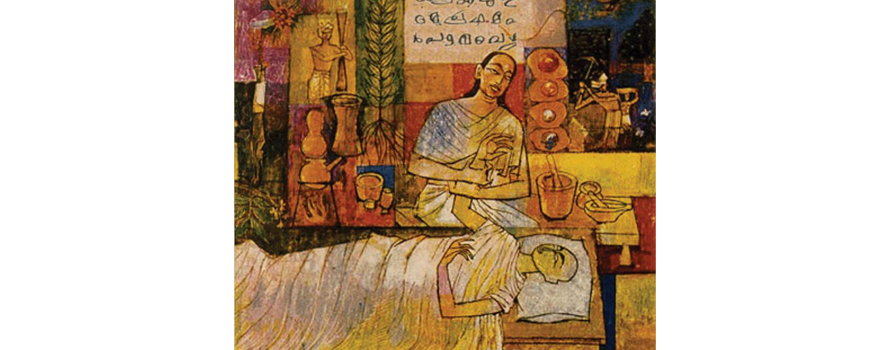The Ayurvedic view on alcohol is fairly simple. Modern society has incorporated drinking alcohol into its way of life. We refer to them as social drinking, alleged leisure drinking, friends, family, and neighbours.
The axiom “Too much of anything is good for nothing” is applicable to alcohol as well. Drinking in moderation is healthy. This was discovered more than 5000 years ago and not just recently.
Ayurveda mentioned drinking wine and brandy several hundred years ago. In reality, Ayurvedic writings have emphasised the health benefits of consuming wine, particularly red wine for cardiovascular health. It facilitates digestion, resolves digestive issues, and encourages restful sleep. To treat particular illnesses and problems, Ayurvedic remedies actually use more than eighty different kinds of herbal wines called Arista & Asavas. Alcohol consumption is subject to a number of limitations under Ayurvedic medicine. Let us look at a detailed Ayurvedic view on alcohol in this blog.
Madya – Alcoholic beverages with Ayurvedic medicine
Alcoholic beverages are included in ayurvedic drinks such as herbal teas, infusions, fruit juices, etc. These drinks were created specifically to treat medical conditions. In Ayurveda, alcoholic drinks made with a specific health condition in mind are referred to as Madya. Simply put, Madya in Ayurveda refers to alcoholic beverages that have medical benefits rather than being poisonous substances.
Madya is created using basic materials and a fermentation technique. Fruits, dried fruits, flowers, herbs, sugar, honey, jaggery, cereals, etc. are only a few examples of the raw produce used. For instance, honey, jaggery, and fruit wine are intended to treat a wide range of illnesses and minor health issues. Following are a few examples of Madya:
- Sarkara: A sugar-based wine that strengthens the heart and kidneys and has other health benefits
- Gouda: This wine’s components—honey, jaggery, and flower extracts—improve immunity, digestion, and skin tone.
- Mardvikal Kapisa: Dry grape wine has many health benefits, including the ability to treat anaemia, prevent diabetes, and enhance thyroid function.
- Tusambu: All three Doshas benefit greatly from alcoholic beverages made from barley.
- Dhanyamala: Dhanyamala is a liquor with significant healing properties that is created by combining water with a variety of grains.
In Ayurveda, numerous alcoholic beverage variations are created specifically to vitiate each Dosha and lessen the related health issues of Dosha.
Warnings about alcohol in Ayurveda
Alcohol consumption is regarded as toxic, including the alcoholic drinks that Ayurveda advises. Alcohol of any form has a harmful effect. It is clear that the Ayurvedic manuscripts mention this.
These elements should be combined with alcohol consumption.
- Know your dosha type
- Eating right food
- Should not be consumed without having a bath
- Check for the season/climate
- The type of liquid and resources used to make it
- The type of vessel that serves the drink
The Ayurvedic view on alcohol consumption is very straightforward. Alcohol is an intoxicating substance, therefore, avoid consuming it if your body is not ready to accept toxins.
Concept of alcohol consumption in Ayurveda
It has so far become abundantly evident that Ayurveda places many limits on alcohol consumption and forbids its frequent consumption. However, the underlying idea is viewed from a different angle.
In general, we think that excessive alcohol use harms practically all of the body’s essential organs. Alcohol, simply defined, dulls the nerves that run from head to toe. The excited nerves become unstable and move the blood to and from the heart more quickly. Additionally, alcohol stimulates brain cells, which results in an unwarranted euphoric feeling. While infrequent drinking may not have such severe effects, frequent or substantial alcohol use impairs the operations of key organs.
Ayurveda, on the other hand, contends that alcohol lacks qualities associated with a healthy body and mind. On a lighter note, drinking alcohol impairs the body’s defence mechanisms. Alcohol’s characteristics clash with Oja’s characteristics, which are those of the immune system. Alcohol immediately impairs the immune system’s Oja functions, lowering the body’s defences against disease. It also lessens the Oja of the mind!
A weak immune system invites all diseases and results in deteriorated health and well-being.
As was previously said, there are several stringent guidelines that you must adhere to when drinking. Alcohol is described in the Ayurvedic text as either nectar or poison, depending on how it is taken in accordance with advice and instructions.
Word of Caution:
Ayurvedic physicians at Birla Ayurveda suggest avoiding drinking any alcohol at all while receiving Ayurvedic treatment or medication. It lessens the effects of medication and slows the healing of illnesses.
Methyl alcohol, often known as methanol or antifreeze, can be used to boost the alcohol level of illegal liquor in desi daru. Humans are exceedingly toxic to methanol; 10 millilitres can cause blindness, while 30 millilitres or more usually result in death. So refrain from consuming country liquor, or Desi Daru as we Indians call it.



